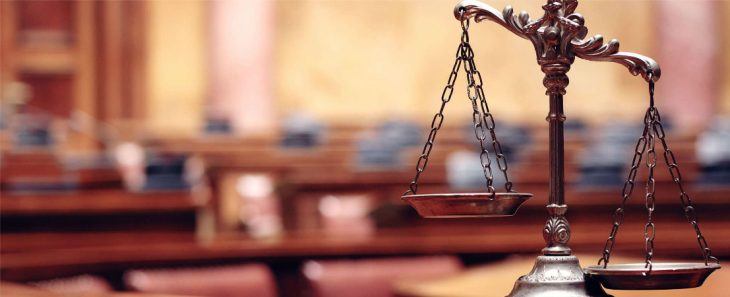Talk Business & Politics editorial: Before you eat that cake …
by June 5, 2018 1:17 pm 815 views

A tried and arguably true maxim in politics is things are never as bad or as good as you believe them to be. Such is the case with Monday’s (June 4) U.S. Supreme Court ruling in favor of a baker who refused to provide a wedding cake for a same-sex wedding.
We might first note a slight qualification in the opening paragraph of this editorial. Monday’s 7-2 decision in the Masterpiece Cakeshop v. Colorado Civil Rights Commission case is not necessarily a be-all, end-all ruling in favor of Masterpiece baker Jack Phillips.
Phillips is the Colorado baker who in 2012 – before Colorado and the federal government officially recognized the validity of same-sex marriage – refused to sell a wedding cake to Charlie Craig and Dave Mullins.
“I’ll make your birthday cakes, shower cakes, sell you cookies and brownies, I just don’t make cakes for same sex weddings,” Phillips said according to the opinion of the Court written by Justice Anthony Kennedy.
Craig and Mullins sued, and the case landed before the Colorado Civil Rights Commission and eventually to the Colorado Court of Appeals. It was the commission’s actions on which the Supreme Court found error. At great risk of oversimplifying a complex issue, seven Justices believed the commission didn’t give Phillips a fair hearing.
“As the record shows, some of the commissioners at the Commission’s formal, public hearings endorsed the view that religious beliefs cannot legitimately be carried into the public sphere or commercial domain, disparaged Phillips’ faith as despicable and characterized it as merely rhetorical, and compared his invocation of his sincerely held religious beliefs to defenses of slavery and the Holocaust,” noted part of the majority opinion.
With Justices Stephen Breyer, Elena Kagan and Kennedy joining the more conservative Justices Neil Gorsuch, John Roberts (Chief Justice) and Clarence Thomas, it’s not unreasonable to believe the ruling is more about process than being a definitive conclusion as to the rights of bakers and same-sex couples. The opinion was much less about religious freedom as it was the process involved in a fair hearing about Phillips’ actions. Comments from the political right about the ruling being a victory for religion are like those of a coach claiming to be the winner of a football game after a pass interference call is overturned in the second quarter. Likewise, the near hyperbolic reaction from the political left is akin to claiming the game is lost following the overturned call.
Justice Ruth Bader Ginsburg’s dissenting opinion – with concurrence by Justice Sonia Sotomayor – provides even the casual observer ample evidence that indeed the game is not over. Ginsburg writes the majority is wrong to believe the Phillips case and a comparable case brought by William Jack should be viewed in the same legal light. Jack asked bakers to make two cakes, one with an image of two groomsmen holding hands with a red X over the image, and other cake with the text, “Homosexuality is a detestable sin.”
“Phillips declined to make a cake he found offensive where the offensiveness of the product was determined solely by the identity of the customer requesting it. The three other bakeries declined to make cakes where their objection to the product was due to the demeaning message the requested product would literally display. As the Court recognizes, a refusal ‘to design a special cake with words or images … might be different from a refusal to sell any cake at all,’” Ginsburg wrote.
In her footnotes, Ginsburg added: “The Division and the Court of Appeals could rationally and lawfully distinguish between a case involving disparaging text and images and a case involving a wedding cake of unspecified design. The distinction is not between a cake with text and one without; it is between a cake with a particular design and one whose form was never even discussed.”
What Ginsburg is essentially saying is a baker may refuse to sell a cake in which the customer requests anti-semitic, racist or any other “disparaging text,” but can’t refuse to sell a non-expressive cake to someone simply because they are black, Jewish, gay, etc.
Also, the Masterpiece ruling could be considered an outlier. It simply reverses the judgment of the Colorado Court of Appeals. It did not reverse broad civil rights rulings and legislation that in recent years have provided more protections for gay Americans.
Think twice before you celebrate or condemn this decision. The larger issue of gay rights vs. religious expression is not wholly decided. It is possible that the Masterpiece ruling will be a footnote similar to those in the historic arcs in which women, blacks and other minorities were provided legal and protected access to “life, liberty and the pursuit of happiness.”
